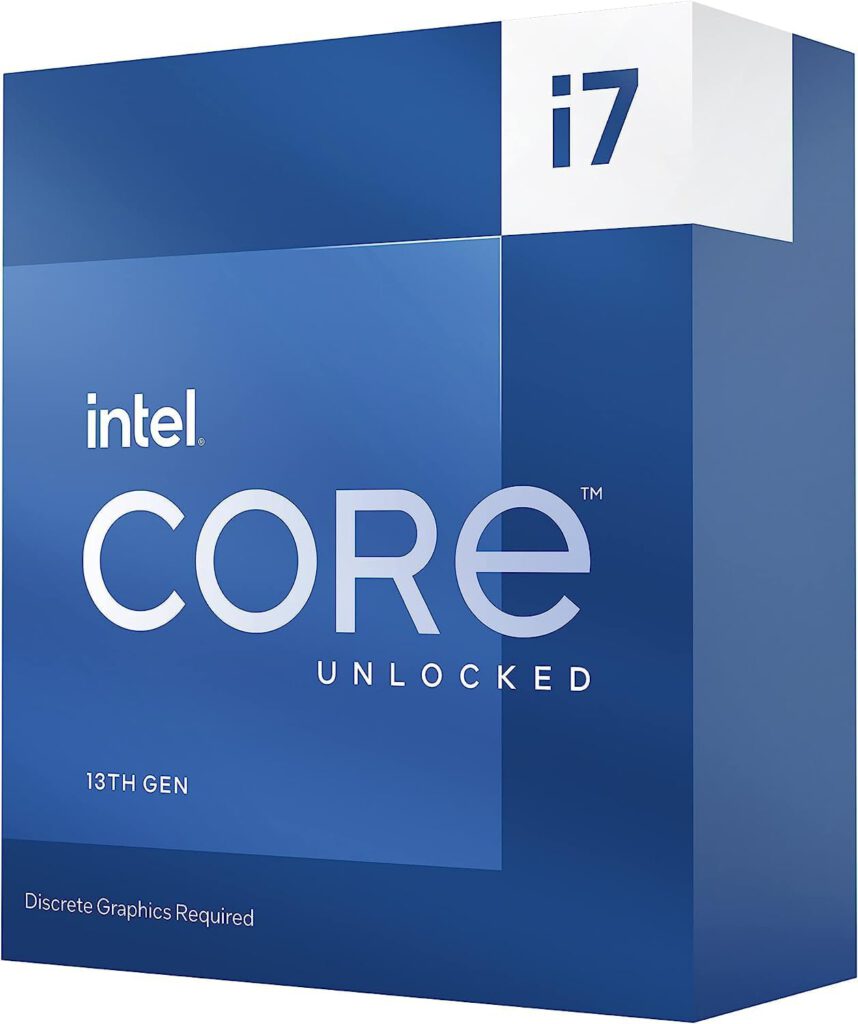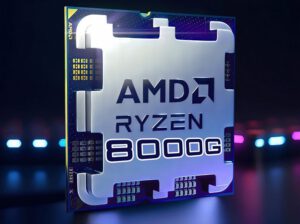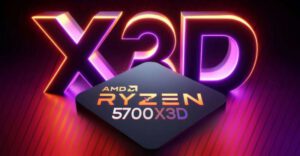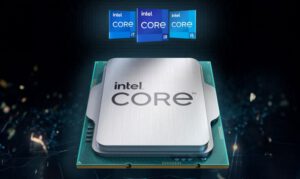The Intel Core i7-13700KF is a powerful desktop processor from Intel’s 13th Generation Core i7 lineup, offering a blend of performance and efficiency that makes it particularly appealing for gaming and productivity tasks.
Intel Core i7 13700KF: An Overview

- Core Configuration: This processor boasts a hybrid core design with 16 cores in total, split into 8 Performance-cores (P-cores) and 8 Efficient-cores (E-cores), leading to a total of 24 threads. This configuration is optimized for handling a mix of high-performance and efficiency-oriented tasks.
- Clock Speeds: The i7-13700KF has a base frequency of 3.4 GHz and can reach a maximum turbo frequency of up to 5.4 GHz. The P-cores can achieve a max turbo frequency of 5.3 GHz, while the E-cores can go up to 4.2 GHz. This range of frequencies ensures robust performance across different types of workloads.
- Cache Memory: It is equipped with a 30 MB Intel Smart Cache and a total L2 cache of 24 MB, which aids in quicker data access for the processor cores.
Intel’s Leap into the Future: Aiming for a Trillion Transistors in Next-Gen Chips
As for the core i7-13700k, it’s important to note that while both the i7-13700K and i7-13700KF are part of the same processor family, the KF variant does not come with integrated graphics. This difference makes the i7-13700KF more suited for setups where a discrete GPU is used.
The intel core i7-13700kf stands out for its impressive multi-core performance, making it a suitable choice for tasks that benefit from high thread counts, such as video editing, 3D rendering, and other intensive applications.
When considering the intel core i7-13700k, it’s evident that Intel has focused on delivering a processor that balances high-end performance with power efficiency, which is a key requirement for modern desktop computing needs.
The i7-13700k, as part of Intel’s latest offerings, showcases their continued innovation in processor technology, combining high clock speeds with efficient multi-core processing.
Lastly, the intel i7 13700k represents Intel’s commitment to providing cutting-edge technology for consumers who need high performance for gaming, content creation, and other demanding applications.
Core i7-13700KF. Key Technical Specifications
- Memory Support: The processor supports up to DDR5 5600 MT/s and DDR4 3200 MT/s memory types, offering flexibility for different system builds.
- PCI Express Lanes: It provides support for PCI Express 5.0, with a total of 20 lanes, enhancing its compatibility with the latest GPUs and other high-speed components.
- Thermal Design Power: The TDP is 125 W, indicating its power consumption under maximum load, with a maximum turbo power of 253 W.
In summary, the Intel Core i7-13700KF is a robust and versatile processor suitable for high-performance gaming rigs and workstations, offering an excellent balance between power and efficiency.

7800x3d vs 13700k
The Intel Core i7-13700K and AMD 7 7800x3d are both high-performance desktop processors, each with distinct features and capabilities. Here’s a detailed technical comparison based on their specifications:
Intel i7 13th 13700k
- Cores and Threads: 16 cores (8 Performance-cores and 8 Efficient-cores) with 24 threads.
- Base and Turbo Frequency: Base frequency of 3.4 GHz, with a max turbo frequency of 5.4 GHz.
- Architecture: Utilizes the Raptor Lake architecture and is compatible with Socket 1700.
- Cache: 30 MB of Intel Smart Cache and a total L2 cache of 24 MB.
- Transistor Size: 10 nm.
- Launch Date and MSRP: Launched in September 2022 at an MSRP of $384.
Amd Ryzen 7800x3d
- Cores and Threads: 8 cores with 16 threads, using AMD’s Simultaneous Multithreading (SMT) technology.
- Base and Turbo Frequency: Base clock frequency of 4.2 GHz and can boost up to 5.0 GHz.
- Architecture: Based on the Zen 4 (Raphael) architecture and is compatible with Socket AM5.
- Cache: 96 MB shared L3 cache, with a L2 cache of 8 MB.
- Transistor Size: 5 nm.
- Integrated Graphics: Comes with integrated Radeon Graphics (Ryzen 7000).
- Launch Date and MSRP: Launched in January 2023 at an MSRP of $449.
Key Differences
- Core Configuration: The intel core i7-13700 has a higher total core and thread count due to its mix of Performance and Efficient cores, potentially offering better multitasking and parallel processing capabilities.
- Cache Size: The r7 7800x3d has a significantly larger L3 cache, which can be advantageous for certain workloads, especially in gaming.
- Transistor Size: The Ryzen’s 5 nm process is more advanced compared to the 10 nm process of the Intel chip, typically indicating better efficiency and possibly better performance per watt.
- Integrated Graphics: The Ryzen processor includes integrated graphics, which can be beneficial for systems without a dedicated GPU.
Performance Considerations
- For Multitasking and Diverse Workloads: The core i7 13700k, with its higher core and thread count, may perform better in scenarios that benefit from parallel processing.
- For Gaming: The Ryzen 7 7800X3D, with its larger cache and integrated graphics, might have an edge in gaming performance, especially in games that are sensitive to cache size.
Conclusion
The choice between these two processors depends largely on specific use cases and requirements. For users needing more cores and threads for multitasking and complex workloads, the intel core i7 13700k could be more suitable.



